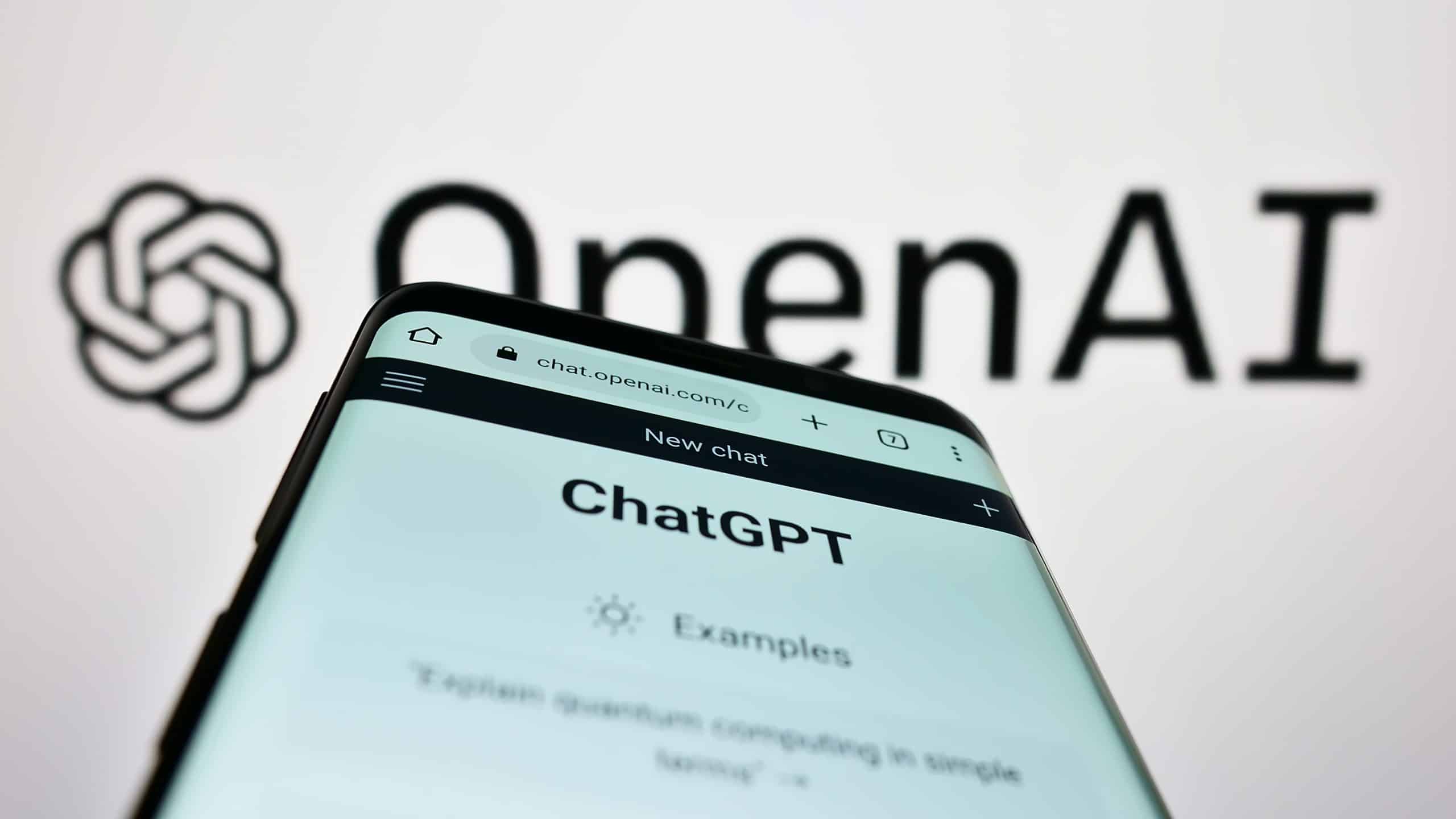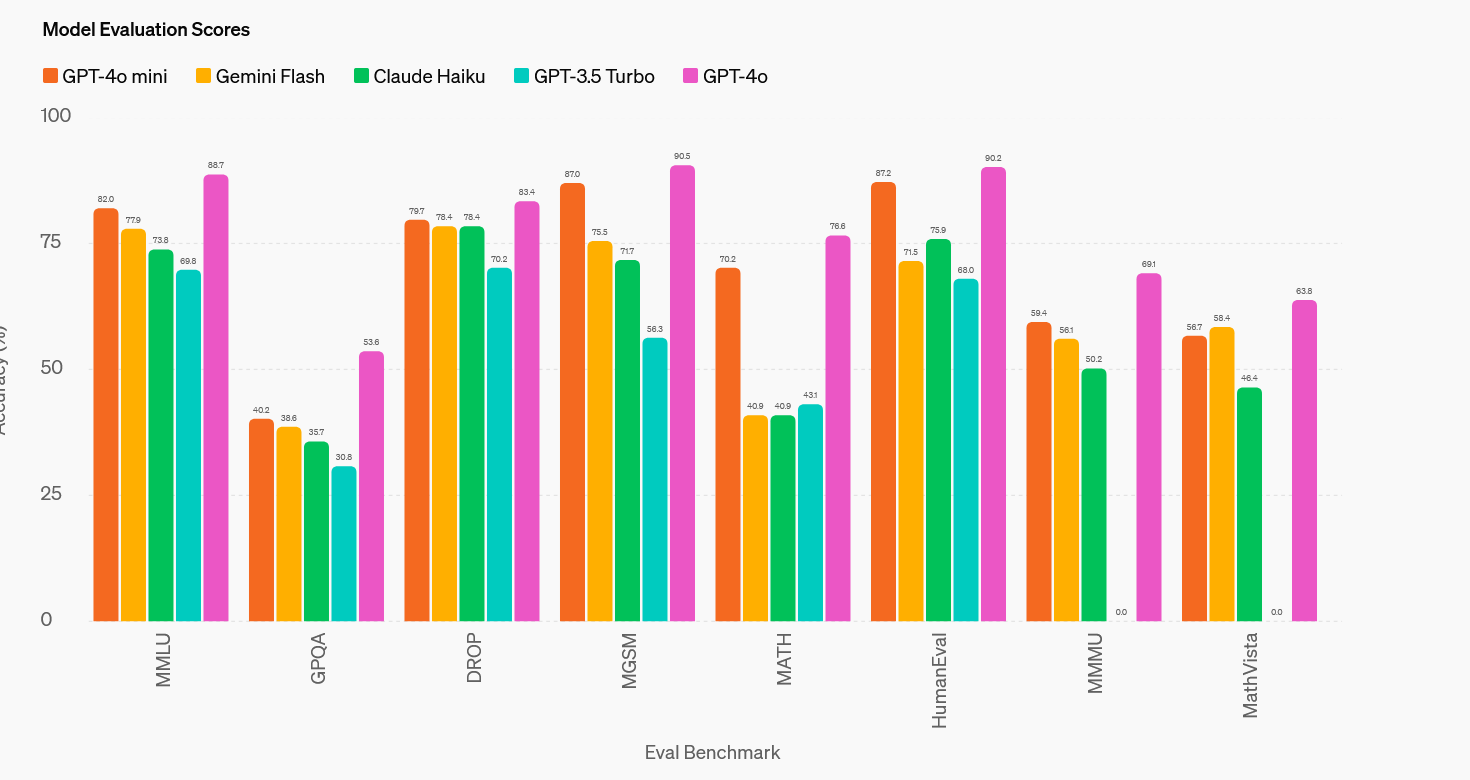ChatGPT’s parent company OpenAI has launched the GPT-mini AI model which is 60% cheaper than the GPT-3.5 Turbo. Here’s everything we know about the latest addition to the company’s AI models and how it stacks against others.
According to OpenAI, GPT-4o mini is a “cost-efficient small model that’s smarter and cheaper than GPT-3.5 Turbo.” It has 28K context and vision capabilities and comes with an October 2023 knowledge cutoff.
The website lists the price as $0.150 per 1 million input tokens and $0.600 per 1 million output tokens. To put that in context, it charges $5.0 per 1 million input tokens and $15.0 per 1 million output tokens in GPT-4o. It also offers the GPT-3.5 Turbo which it classifies as a “fast, inexpensive model for simple tasks. The model, which has a 16K context window and is optimized for dialog, is priced at a tenth of GPT-4o.
Incredible that OpenAI just dropped the cost of AI by 60% with their release of GPT-4o mini. Once fully tested on our end, we anticipate bringing this to Box and offering unlimited use on documents for customers using Box AI.
— Aaron Levie (@levie) July 18, 2024
OpenAI Launches GPT-4o Mini
OpenAI expects the GPT-4o mini to expand the range of applications built with artificial intelligence as it’s a much more affordable model. Notably, while the model is priced cheaper compared to other models from OpenAI, it does not compromise efficiency.
According to the company, “GPT-4o mini scores 82% on MMLU and currently outperforms GPT-4 on chat preferences in LMSYS leaderboard.”
It is capable of performing multiple tasks like passing a large volume of context to the model, applications that parallelize multiple model calls, and even interacting with customers through real-time text responses – something we see in customer support chatbots.
How GPT-4o Mini Compares to Other Models
GPT-4o Mini is a small model with multimodal reasoning and superior textual intelligence. Here’s how the model compares to others.
- Reasoning Tasks: GPT-4o Mini scores 82.0% on MMLU, a textual intelligence and reasoning benchmark. The corresponding figures are 77.9% for Gemini Flash and 73.8% for Claude Haiku.
- Math and Coding Proficiency: GPT-4o mini scored 87.0% on MGSM, measuring math reasoning. The score was 75.5% for Gemini Flash and 71.7% for Claude Haiku. Similarly, GPT-4o mini scored 87.2% on HumanEval, which measures coding performance. The score is higher than Gemini Flash’s 71.5% and Claude Haiku’s 75.9%.
- Multimodal Reasoning: GPT-4o mini scored 59.4% on MMMU which is a multimodal reasoning eval, as compared to 56.1% for Gemini Flash and 50.2% for Claude Haiku.
OpenAI partnered with Ramp and Superhuman whose research tells that GPT-4o mini performs significantly better than GPT-3.5 Turbo for tasks some tasks. These include generating high-quality email responses when provided with thread history and extracting structured data from receipt files.
OpenAI Has Priced Its New Model Below Peers
Notably, the price for GPT-4o Mini is lower than what Google charges for Gemini Flash and Anthropic charges for its Claude Haiku.
For instance, Google charges $0.35 per 1 million tokens (for prompts up to 128K tokens) and $0.70 per 1 million tokens (for prompts longer than 128K) in input. For output, it charges $1.05 and $2.10 respectively. Anthropic on the other hand charges $0.25 per 1 million tokens for input and $1.25 per 1 million tokens for output.
Going by the pricing and the overall features, OpenAI’s GPT-4o mini seems to offer a lot more value.
AI Models Might Get Even Cheaper
Notably, AI models might get even cheaper in the coming days and next week Meta Platforms is expected to launch the largest version of its free offering, Llama 3. Multiple companies are building AI models and as competition ramps up, they might need to lower the pricing.
Notably, we are already seeing a sort of “AI price war” in China where Alibaba slashed the prices for its Qwen LLM models by as much as 97%. Rival Baidu went a step further and said it would offer enterprise customers two of its Ernie LLM models for free.
The price war was initiated by TikTok’s parent company ByteDance by offering access to its LLMs at less than 1% of GPT-4.
According to the Chinese government, there are 100 LLM models with more than a billion parameters in the country and they now seem to be competing to grab market share by cutting prices. While the price war could hurt revenues and profits in the short term, Alain Le Couedic, senior partner at AI investment house Artificial Intelligence Quartermaster, believes price cuts would pay off for some companies in the long term.
“The race for dominance in the market is a sign that many players see attractive opportunities down the road, even if this requires some pain in the short- to mid-term,” said Le Couedic.
That said, price wars can be nasty as we are witnessing in the electric vehicle market which has seen a spate of bankruptcies including that of Fisker which recently sold off its vehicles in a fire sale.
towards intelligence too cheap to meter:https://t.co/76GEqATfws
15 cents per million input tokens, 60 cents per million output tokens, MMLU of 82%, and fast.
most importantly, we think people will really, really like using the new model.
— Sam Altman (@sama) July 18, 2024
Does OpenAI’s New Model Make Sense For Users?
On the face of it, OpenAI’s GPT-4o mini model seems to make sense for most users as it offers a combination of efficiency as well as performance.
The world’s AI appetite seems far from over and the term is increasingly featuring in the earnings calls of all kinds of companies. AI euphoria is taking over the world and the enthusiasm is not merely limited to the investing community. Companies across the spectrum are trying to incorporate AI into their products and services.
AI is permeating all industries including some which we might not usually associate with technology – pillows, shopping carts, and even spirituality for instance.
The number of AI companies is also exploding and there are 15,000 such companies in the US alone, followed by the UK which had 8,900 AI companies at the end of 2023. An increasing number of startups are mentioning “AI” in their pitches as investors are willing to pay a hefty premium for companies in that space.
The affordable models from OpenAI would mean that more individuals and companies can incorporate these in their businesses and then hopefully come up with compelling products and services for customers.

